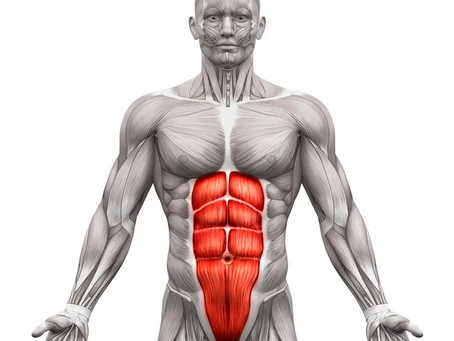The Importance of Rotational Strength and Symmetry in Preventing Back Injuries in Baseball & Golf Athletes
What does your core routine look like? Does it take into account what you do as a baseball player or golfer specifically?
For many athletes, the answer to this question is “no”. The vast majority of young athletes place a strong emphasis on strengthening the typical 6 pack muscles (The rectus abdominis)

This muscle group is very important for trunk stability in flexion (bending forward, crunching, etc), however, it is only a part of the group of muscles involved in rotationally dominant movements like the swing or the throw. Baseball players have to rotate through the trunk quite a bit to throw a ball well. Golfers have a massive trunk rotation force on both drives and in the mid-range game.
Our goal as performance physical therapists is to teach our athletes how to move and train with purpose and intention. Our strength and conditioning routines need to translate to the demands of the sport.
Baseball and golf are rotationally dominant sports. Training in pre-dominantly front-to-back movements is not going to move the needle for creating maximum strength, stability, and power in rotation.
So, what do we as rotationally dominant athletes need to be prioritizing in our core stability routines?


These muscle groups are the main stabilizers of the spine and are the most active in rotational movements. We have to be rock solid in these patterns.
Additionally, we have to have symmetry in strength as well as range of motion in rotation.
What do I mean by symmetry?
I’ll give you an example. As a right-handed athlete, I spend the vast majority of my training/playing rotating to my left side. This is a problem because it creates an imbalance in rotational strength from right to left and it also creates an imbalance in my ability to access rotational positions from right to left. (i.e. I can rotate much farther to my left than I can to my right)
This can and often does lead to low back injuries in baseball athletes.
Being able to transfer forces in rotational patterns well is the name of the game in baseball and golf. It is also the best way to maintain spine health.
So what does this look like in training?
Step 1: Create a solid isometric (non-moving) strength base:
(Click on each exercise for example video)
– Side plank with hip abduction
– Single arm retro sled pull w/ KB in opposite arm.
Step 2: Perform Anti-rotational movements in concentric and eccentric patterns:
– Sorenson holds with rotation
– Single arm suitcase deadlift
Step 3: Create power in rotation:
– Rotational ball slams at wall
Step 4: Create balance to maintain steps 1-3
– Rotational ball slams at wall
Perform these exercises on both sides to create balance in strength and range of motion in rotation.
Don’t be unintentional in your training and your preparation for your sport. When you are informed, understand why you are doing the movements you are doing, and think about how they translate to your sport it makes you a better athlete.
Train with intention, piece these movements into your routine if you are a baseball player, golfer, or a rotationally dominant athlete of any kind to maintain spine health and maximize your power in rotation.
Spencer Petett PT, DPT
Be Ready Performance Therapy
Looking for help recovering from a specific injury or need an individualized plan? Schedule a call, and make a note to you would like to confer with Dr. Spencer in the note.


